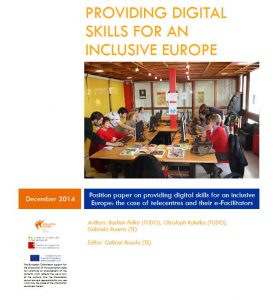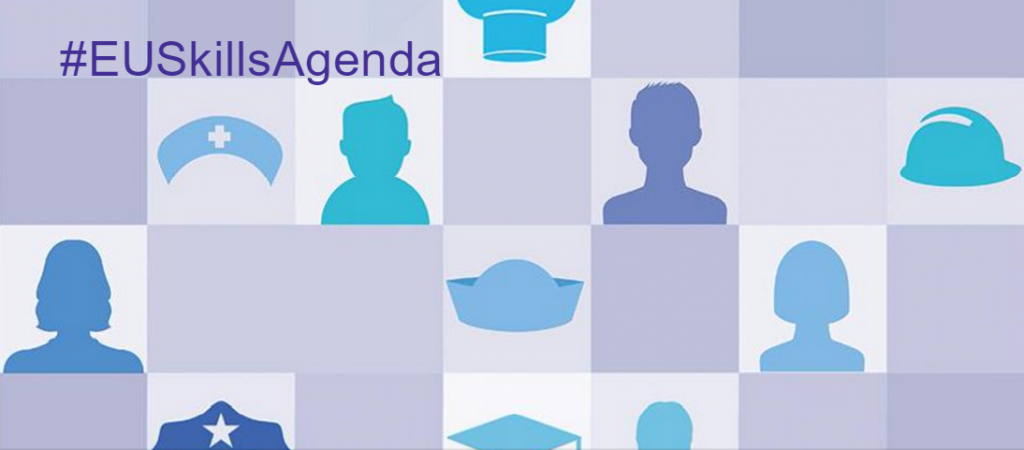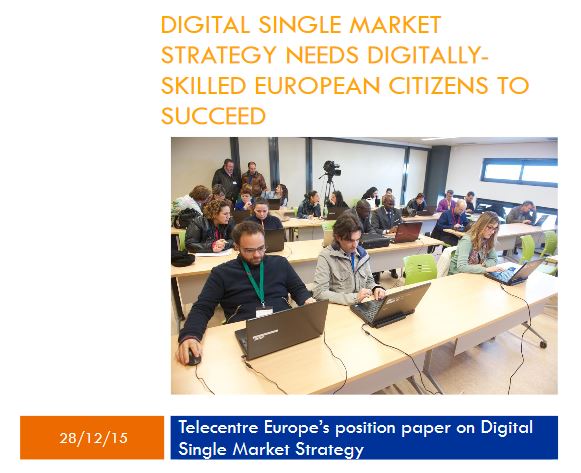05 Dec Digital skills and inclusion through e-facilitators (Telecentre-Europe’s policy position)
05 Dec, 2014
 Telecentres have placed themselves as providers of ICT access and digital competences in local communities. This policy position paper provides the background in terms of the space and context which demand the existence of the e-facilitator profession and its further acceptance and professional up-skilling.
Telecentres have placed themselves as providers of ICT access and digital competences in local communities. This policy position paper provides the background in terms of the space and context which demand the existence of the e-facilitator profession and its further acceptance and professional up-skilling.
People who are disconnected from the digital world today show a multitude of disadvantage features: this group has little options to access the formal education system, so non-formal adult education becomes their unique option (apart from family and friends, i.e. informal learning) to get acquainted with e-skills and digital opportunities. This makes this target group a multi faceted disadvantaged group that will need special support on their way to the digital society. Education staff with abilities in dealing with this target group is a key for providing digital competences.
Telecentre Europe (directly or through its members) has been involved in a strand of four EU financed development projects (Lifelong learning programme, 2011-2014) aiming at supporting the professionalization of telecentres, their services and staff. One of the outcomes was the branding of the profile of the “eFacilitator” as a vocational profile of educational staff for ICT competences in telecentres.
Recent years have seen a constant rise in requirements towards educational staff working in telecentres. Telecentre staff meets challenges like reduced public funding, new labour market demands for employability concerning ICT qualifications and changing technological systems (tablets, cloud applications, apps). On the other side, end users are requesting new services (mobile devices, online job searching, certification of competences) and new target groups are entering the digital world and face competence gaps. These developments lead to a demand for professional training for educational staff of telecentres.









